Iceland in Winter vs Summer: Which is Best?
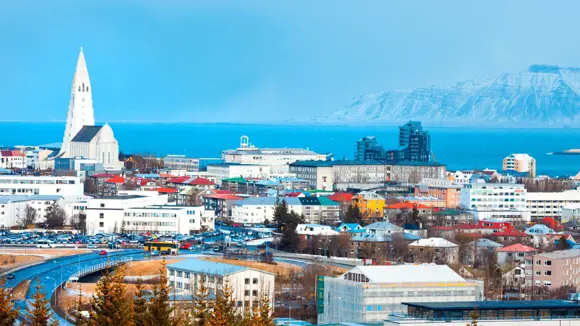
Iceland is truly a traveller’s paradise. With breathtaking landscapes and incredible things to do, holidays in Iceland are like no other. But, one question that many visitors ask is “When is the best time to visit the country?”
If you’re trying to decide which season is best for your holiday, we have prepared a comparison of Iceland in winter vs summer.
Is Iceland Better in Winter or Summer?
Each season in Iceland has its own unique beauty. Warmer temperatures in summer mean you’ll find the outdoors more enjoyable. On the other hand, some activities such as snowmobiling are best enjoyed in the winter. Simply put, no one season is best.
Iceland in Winter
With snow-capped landscapes, Christmas markets, and New Year’s bonfires, winter is a magical season in Iceland. It’ll be cold and the nights will be long, but there’ll also be plenty of light.
Weather in Iceland in Winter
Winter in Iceland begins around October/November and lasts until about March/April. Temperatures typically average around -2°C during the coldest months which are December, January, and February. Precipitation is quite high and comes in many forms such as rain, sleet, and snow. But due to the Gulf Stream, the winter weather in Iceland is milder than you may expect.
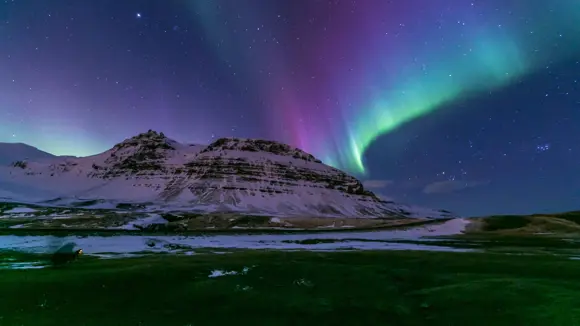
Best Things to Do in Iceland in Winter
If you’re looking to embrace the winter season in Iceland fully, these activities will allow you to enjoy the best of the season.
-
Watch the Northern Lights - The long nights and prolonged hours of darkness make winter the best season to observe the Northern Lights in Iceland. If you’re visiting anytime between October and April, you won’t want to miss this colourful phenomenon across the Arctic sky!
-
Explore icy wonders - Winter is the best time to experience Iceland’s many activities related to snow and ice. Whether you’d like to snowmobile across a glacier, explore the interiors of icy caves, or be mesmerised by frozen waterfalls, you can’t go wrong.
-
Celebrate Christmas and New Year Icelandic style - The holiday season in Iceland is unparalleled. You could walk through the festive streets of Reykjavík and soak up some Icelandic history, enjoy a Christmas concert at Harpa Concert Hall, laugh through the annual comedy show - Áramótaskaupið, or watch fireworks aboard a cruise!
Advantages of Visiting Iceland in Winter
Iceland’s subarctic climate means there are several advantages to visiting the country in winter. Here are some that might interest you.
-
If you’re a photography enthusiast, you’ll love Iceland in winter. The light is simply perfect around this time. With the sun so low on the horizon, the skies are painted in sunset hues.
-
Your chances of viewing the Northern Lights are heightened at the peak of winter.
-
Winter activities such as snowmobiling and ice fishing are best enjoyed during the winter.
-
Accommodation and car rental prices are relatively lower, meaning you can travel on a budget.
-
Tourism is typically lower in winter so you can avoid large crowds when visiting popular attractions.
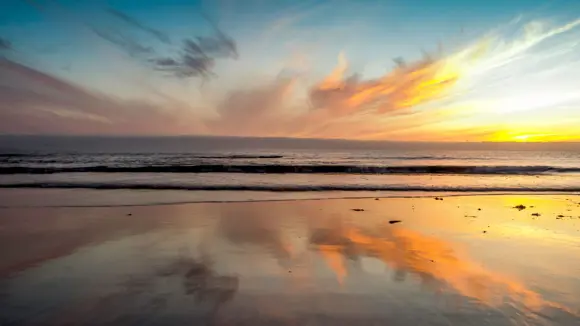
Iceland in Summer
You may be surprised by how much daylight Iceland receives in the summer. In fact, due to its proximity to the Arctic Circle, the summer even brings a period where the sun doesn’t fully set. Lasting for approximately 2 weeks in June, this phenomenon is known as the midnight sun. No wonder summer is such a popular time to visit Iceland.
If you’re wondering what summer in Iceland looks like, we’ve covered the most important aspects to give you a glimpse into what you can expect when visiting during the warmer months.
Weather in Iceland in Summer
The summer season reaches its peak from June to August in Iceland. Throughout this period, the weather is mild and precipitation is low. During the day, temperatures can spike up to 23°C, though they typically average around 10–13°C. There is also ample daylight which means you can keep exploring the Icelandic outdoors late into the night!
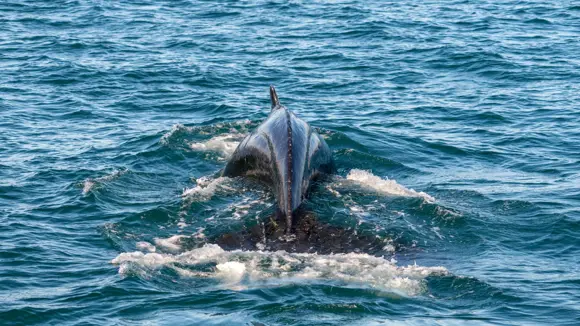
Best Things to Do in Iceland in Summer
There are several fun activities you can enjoy in Iceland during the summer, but these are some of the best.
-
Bathe in the Blue Lagoon - Although the steamy waters of Iceland’s geothermal pools seem more inviting in the winter, the warmer air in summer makes it an altogether different experience. A dip in the Blue Lagoon is the perfect way to wind down after a long day spent outdoors.
-
Watch the midnight sun - Iceland’s location in the Arctic North means that conventions of sunset and sunrise aren’t so rigid here. You might even experience 24 hours of daylight on the same day! If you visit Iceland in the summer, you can’t miss the sun at midnight.
-
Say hello to whales and puffins - Every summer, Iceland’s whales come home to the country’s crystal waters. With minke whales, humpbacks, bowheads, and belugas to name a few, a whale-watching tour in Iceland during the summer is unparalleled! You’ll also be in with a chance to watch the playful puffins that flock to Iceland in the summer.
Advantages of Visiting Iceland in Summer
There are several advantages to visiting Iceland in the summer. If you’re feeling indecisive, it’s worth checking them out.
-
Roads are more accessible, and you can even visit areas that are completely closed in the winter. This means you can plan a trip to the Highlands without worrying too much about road closures. However, it is still advisable to check your route before heading out.
-
Waterfalls in the winter can get slippery and have to be watched from a distance. But, in the summer, you have better accessibility. You can even walk behind the cascade at Seljalandsfoss!
-
Hiking and camping are more enjoyable in the pleasant summer weather.
-
Extended daylight hours allow for more time to explore and admire the sights in the land of fire and ice.
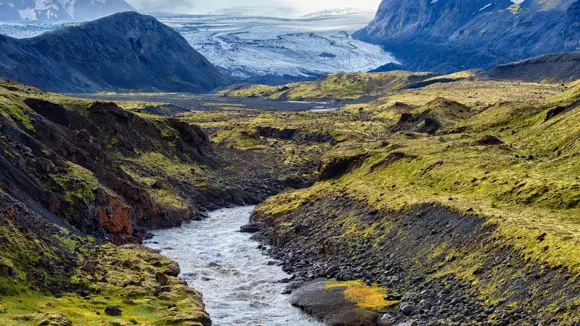
Should I Visit Iceland in Winter or Summer?
The best time of year to visit Iceland depends upon what you want to get out of your trip. If you’d like to spend more time outdoors and spot dolphins in the midnight sun, summer is your best pick. But, if you want better chances of hunting the Northern Lights, winter will be better.
Ultimately, you should know that you can’t go wrong with either. Start your journey by booking your accommodation. From Reykjavík to the Westfjords, we have a hotel that can cater to your needs and provide the ideal base from which to explore this magnificent country.